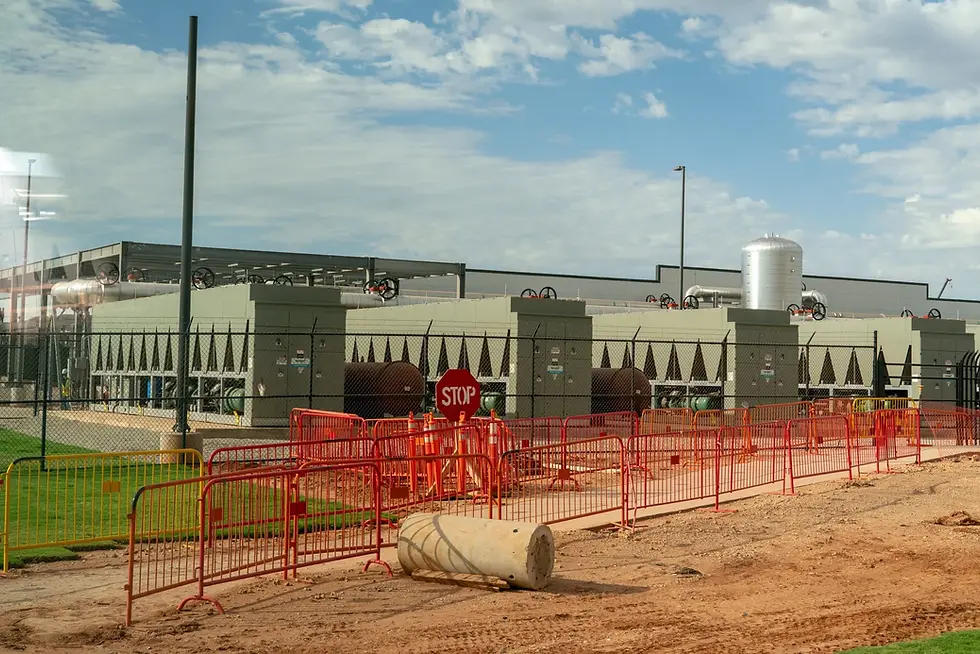Yes, and: On the Improv Logic of Sustainable Development
- Jose Arrieta

- Aug 24, 2022
- 4 min read
Let's be real for a second. I think we can all agree that we have the technologies needed to fight climate change. Less consensus is for the motion that we have the resources. Yet, we do, if we take a couple of trillions needed every year to meet the Paris agreement our economies would not collapse. I mean our governments signed under the agreement under that assumption.
Sadly though. I am skeptical that we will solve the climate crisis. This is a tragedy. It is also the reason why I study management. In essence, the climate crisis is one of incompetent leadership, organizing, and collective action. All key aspects of the role of a aanagement scholar. It is not an economist role to fix them. It is the role of the people who care about business firms and the people in them. Yet, as a society, we lack a coherent way of organizing people in the absence of scarcity or technological hope. In the absence of these, humanity has no real theory for solving the problems.
So should everything in the world just die? Hell no! We can do this! We just have no theory of how. So what can we do? Well, improvise. Technically speaking in the absence of theory or a valid track record is improvisation. You are just trying it out. But the current state needs another form of improvisation. Because we can afford to solve the problem. Hell, we could afford it if it cost more.
Improvisation has one golden rule: Yes and, At every point when someone says something you accept it at face value, say yes and you add your bit. This is ridiculous, funny, and potentially, I'd argue, will save our world. My confidence lies in the fact that scientists are certain that climate change is happening. Yet, they are uncertain of how to solve it. So, if you invest in a couple of thousand solutions that all want to go away from the bad, it is implausible that you will stay close to the initial bad place. You could end up poor and cold. But cold is better than rich and warm.
The Yes and logic is starting to happen. Climeworks the leading carbon capture firm organizes yearly a summit to share ideas with their direct competitors. The UN and IPCC tasked their technology to absorb 1/3 of our emissions in a decade. At the moment, they can capture a billionth of that amount. Scaling by 9 orders of magnitude is impossible and thus banding with others is the best way forward. This does not mean that Climeworks is looking to save the world probono. It means that scarcity is not a central problem in their industry. As long as they work by themselves, they will be alright. However, can we imagine a transition to a "yes and" logic?
No. Not really, the problem is the inherent vulnerability of needing to transition from a framework built on the logics of economics and its pursuit for maximization to one of acceptance and risk leveraging. In economics, the core logic can be summarized as "yes, but". Yes, you can invest in Climeworks, but first, think of how well they have protected their IP and how good their cash flow is. As you do this you note that they are a bit loose in IP and hemorrhage money. You stop there before realizing that they do it because they have funs enough to cover their bets for the long term.
The "yes but" logic is a tragedy for sustainability because just as for Climerworks, for any sustainability initiative there are dozens of metrics that show their weak points. This is what finance experts call "aggregate confusion". Aggregate confusion means that when you look at the main ESG rating systems and try to estimate their correlation you find that the correlation is quite low (see below). I am not a quant person, but in seeing the dispersion data I feel a punch in my stomach. Measures that guide policy makers and investors in their goal to solve climate change, mostly do not. One cannot learn from any of this. one cannot provide guidance. What's worse, the graph is based on having the "most highly correlated metric" on the X axis, so all the other graphs are worse! Basically, we are at a point in which there might not be a real objective measure of sustainability. But we have an objective measure of the critical state of our world.
This blog is by no means a place to look for hope. Yet, I can fully back, at the moment, a pursuit of organizational improvisation right now to solve the greatest problems of our era. There is truly nothing else we can do. I know that hurts. But we need your help. In the "yes and" world we all need to act. It might have been your grandparents and their grandparents who broke the world. But it is on us to try our best to fix it.




Comments